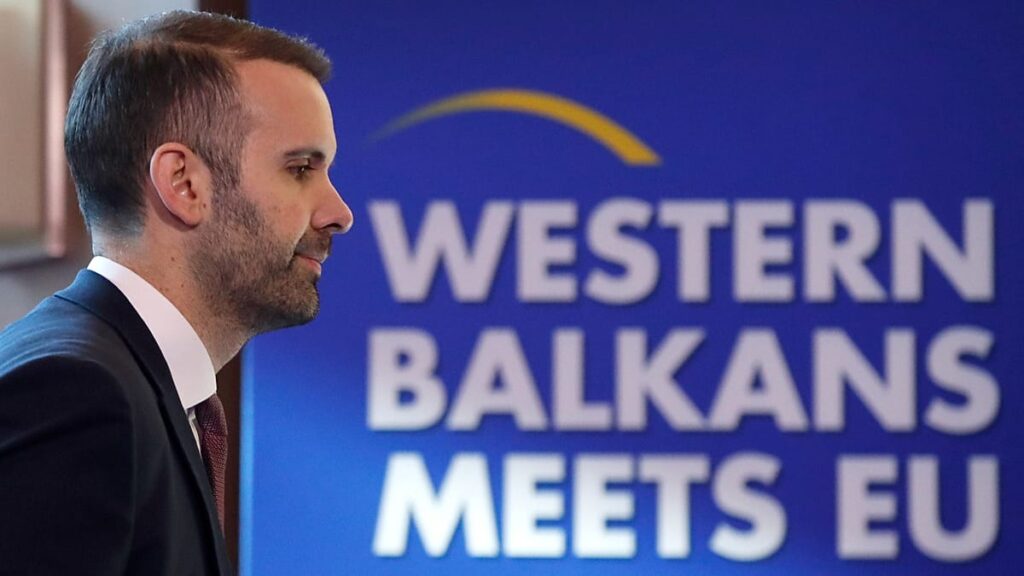Montenegrin Prime Minister Milojko Spajić is optimistic that his country will conclude the vetting process for EU membership in 2026.
“We are gunning for closing all the chapters by the end of next year,” Spajić said in an exclusive interview with Euronews in Brussels.
“And we have a really, really great chance to have a new member state” during the term of the current European Commission which expires in 2029.
Montenegro is the smallest of the nine EU candidate countries, with just over 620,000 nationals. It is currently the most advanced in implementing the constitutional, judicial and economic reforms required for Brussels to consider a country ready to join the EU.
The EU has praised Montenegro’s progress on reforms, especially those related to the Growth Plan for the Western Balkans, a strategy to accelerate the region’s economic development through enhanced integration and fundamental reforms.
However, the accession process depends on Montenegro completing key reforms, particularly regarding the rule of law and appointments to its constitutional court, with the ultimate accession treaty being ready only when Montenegro is ready.
Spajić said it was in the interest of both the EU and Montenegro to add the Western Balkan country as a new member.
“Once we join, we want to add value, we don’t want to detract value,” he added. “We will be somebody that makes the EU richer.”
For Montenegro, there is no alternative to full membership to the European Union, Spajić told Euronews in the wide-ranging interview.
“Nobody is even thinking of alternatives. The full membership of the European Union is what we are gunning for,” he said, speaking in the wake of the EU Enlargement Forum organised by the European Commission in Brussels this week.
Spajić said he believes his country’s accession to the EU is “only fair,” adding, “we are a country surrounded by the European Union,” he said.
He noted that Montenegro officially became part of the Single Euro Payments Area, SEPA, in October. Montenegro unilaterally adopted the euro as its de facto currency in 2002, but for more than two decades payments travelled through costly, fragmented channels.
Now, it has fully joined Europe’s payment infrastructure, putting an end to this system.
Additionally, free mobile phone roaming between Montenegro and the EU is set to begin in 2026.
“We are integrating into the single market to an extent unseen until now, but also with the political EU,” said Spajić.
Read the full article here
